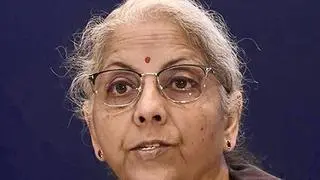The recent UDAY (Ujwal Discom Assurance Yojana) scheme is, indeed, a positive initiative. The scheme comes at a time when DISCOMs have accumulated losses of about ₹3.8 lakh crore and outstanding debt of approximately ₹4.3 lakh crore (as on March 2015). The scheme attempts to resolve these legacy issues, in the short- to mid-term.
What is needed are long-term and structural measures. Fiscal incentives may only help patch the work. The States and DISCOMs need to come together to implement UDAY to restore the sector’s viability, foster growth in renewable power, and stabilise the financial sector by decreasing NPAs.
The growing problem of NPAs in the sector requires an enabling legal and regulatory framework, coupled with appropriate institutional structure for funding and managing distress assets, and facilitating takeover and transfer to new management/acquirer. Hopefully, the impending bankruptcy law would be passed in the coming Budget session. The government has ambitious plans for addition of 175 GW renewable power capacity by 2022, including 100 GW of solar and 60 GW of wind, which may require huge investment of about $150 billion in the next seven years. It is estimated that 2016-17 will see an increase of 140 per cent in solar capacity. This would need a substantial jump in budgetary allocation, which was ₹2,500 crore in 2015.
We expect the Budget to lay emphasis, allocate adequate funds and take measures to strengthen domestic end-to-end solar panel and wind-turbine manufacturing capacity, to meet targeted growth while maintaining quality and cost competitiveness at international levels.
The current mechanism of power purchase agreements with Central or State entities is not enough to mitigate viability and third-party risk. Immediate measures are needed for ensuring self-sustained viability of renewable power projects. These include, enforcement of Renewable Purchase Obligations(RPO), availability of cheaper debt, and must-run status for renewable projects, among other things. Policy clarity and fiscal incentives for strengthening the business model of roof-top solar and decentralised generation are also expected.
The writer is Managing Director and CEO, PTC India Financial Services








Comments
Comments have to be in English, and in full sentences. They cannot be abusive or personal. Please abide by our community guidelines for posting your comments.
We have migrated to a new commenting platform. If you are already a registered user of TheHindu Businessline and logged in, you may continue to engage with our articles. If you do not have an account please register and login to post comments. Users can access their older comments by logging into their accounts on Vuukle.